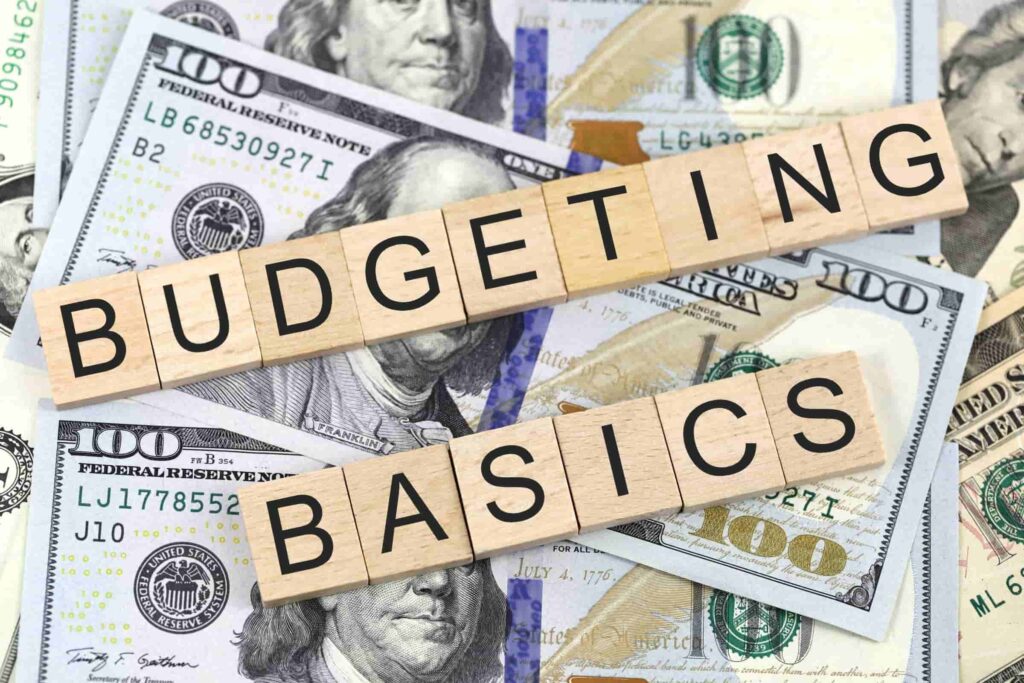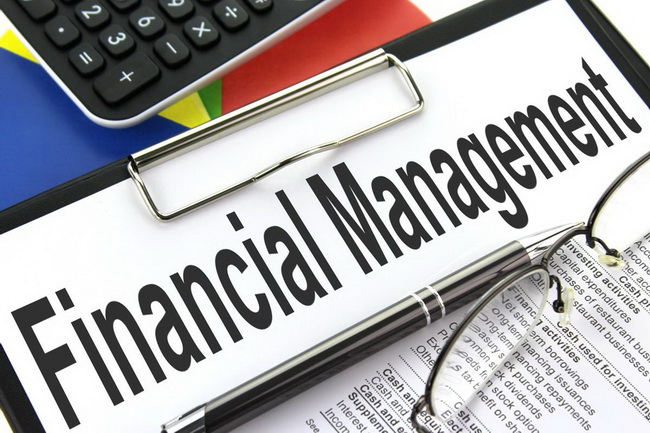Personal budgets are plan of financial management designed to monitor income & expenses over certain period of time, which is usually either monthly or weekly. it includes part that is devoted to saving & investing in future for targets.. including emergency situations, schooling or retirement.
The main purpose behind creation of personal budget is to control money effectively & allocate funds wisely as well as fulfil your financial goals. Its created by analyzing diverse aspects like amount of income, expenditures & debts, goals for future as well as other factors. With all of these elements in mind it allows you to handle your money more energetically.
Topic Available

Why Is Budgeting Important?
We also suggest cutting length of your dress alike to clothes you wear that means you should reduce your expenditures alike to income you earn. Budgeting is way of permitting you to control cost of your expenditure adequate to your earnings & is essential to financial plan. These are just few of reasons that to make budgeting crucial instrument
- Financial Control : Budgeting lets you monitor & manage your expenditure to warrant that you don’t pay more than you earn.
- Goal Achievement : Budgeting is method by which you are able to allocate cash to fund certain financial goals including saving for getaway, purchasing an investment property or even paying off debt.
- Emergency Preparedness : It can also allow you to reserve specific amount of money to cover unexpected scenarios in future. It will benefit you be prepared in case of an emergency.
- Debt Management : It can benefit you monitor & control your outstanding credit.
- peace of mind : Budgeting can benefit you organize your finances. Being aware of where your money is being spent & having strategy to plan for future eases anxiety about finances & gives tranquility.
How to Make Personal Budget in 6 Easy Steps?
The personal budget for finances is an instrument for managing your finances that can help to manage your spending & plan to fund future. However, creating an individual budget is difficult, since it requires many procedures & also decisions that need to make. Therefore, how do create budget?
If you follow steps below in following steps, you will have ability to build an ideal personal budget. You can also take informed decisions regarding your finances.
1.) Determine purpose
Its difficult to forecast future. However, certain fundamental questions must to be asked early throughout your life. As an example, what time do you plan to take your retirement? What do you plan to do for your retirement? Are you looking to buy an apartment? Do you have kids or want to If yes do you have goals for future? Make list of your priorities & put items down. By writing these down can benefit you to make things easier as well as financial planning. majority of people don’t control their finances solely due to fact that they lack an organized plan to them. following steps can benefit you determine what you have to set aside each month & how long. Additionally, priorities of your life change periodically and, consequently, you need to adjust your financial plan for yourself accordingly.
2.) Recognize your costs
Keep track of your family’s expenses over between two & three months in order for better understanding of what amount is used for which task each month. Determine most important & then allocate money compatible to. first step is to warrant that you have satisfying money for your fixed costs like rent/ home loans & car loans, as well as utility bills, etc. & then, create an expense budget for your non fixed expenses such as food shopping, dining out or going to movies, among others. Be sure to not exceed amount amount you’ve allocated to each bucket. If you think that you are paying much more than you have money for be sure to review your expenses, focusing on those that are influenced by variables.
3.) Distinguish need from want
The ability to separate your wants from your desires is crucial to financial security of your family. There are lot of things are in our wish list, however it must be in line with amount we are able to afford. Although it may appear easy to say that credit & loans can benefit us spend more money, but there’s always an element of risk. Like, for instance, your car is an asset that depreciates which is why it is advised to buy within amount that will be able to pay off loan in five years. With ease of credit from banks, it could appear that you could purchase car you want for 20 lakh. But you could afford one that is priced at 7 lakh i.e. it is possible to repay amount in five years. Perhaps, for second automobile, you could decide to purchase 20 lakh car, if you consider that amount of your income & net worth are likely to rise within coming five years.
Avoid with credit cards as often as you can. This can seriously damage integrity of your finances.
4.) Make plan ahead

There are annual expenses ranging such as tax/insurance payments to holiday expenses which can be anticipated. If you set aside amount you can each month to pay for specific cost, at close of year, you’ll be prepared financially for expense. Most people will take personal loans to cover these expenses & then continue to repay it with interest rates & fees for remainder of year. If we could stop cycle & think ahead, we could avoid unneeded stress & lose cash.
One strategy you can employ when creating plans to future is 50 30 20 rule. It can assist you in creating an individual budget by breaking down your financials into three sections.
- 50% to meet your needs: You can allocate 50% of your money to pay for essential expenses for example, house rent & phone bills, as well as electricity food & so on.
- 30 percent to Desires: You can allocate 30 percent of your earnings for leisure expenses such as travel & shopping, entertainment, etc.
- 20% to invest: You should allocate 20 percent of your earnings towards savings & investments. You can put it into with mutual funds or fixed deposit, PPF, NPS & so on. in accordance with your objectives.
5.) emergency corpus
Prior to beginning making investments & saving in future, you must create an emergency fund. This fund can be set aside for emergency situations & not to use it except in event of an emergency. What is accurate way to determine what constitutes term “emergency? cost of paying your credit card certainly isn’t only one. It may focus on providing an income boost during injury, loss or illness. amount of your account should range from three to six months worth of monthly expenses required to sustain. Making an emergency savings fund is vital aspect of budgeting & financial management.
6.) Be sure to save
It is easy for determining amount you are able to invest.
Income-Saving = Expenses
Create your budget around this equation. How do you figure out what amount to put aside? Start by putting 10% of your annual income for retirement fund & don’t spend it on any other reason & not for anything other than your kids education or wedding.
Set your next goals as short term, intermediate term & long term goals based on priorities you have set. Beyond retirement long term goals are children’s education plan as well as marriage plan Mid term goals are down payment needed to buy home or car.
while your short term goals are travel as well as buying appliances, gadgets & other devices & so on.. Put aside bit of cash compatible to amount you estimate for each bucket in addition to whatever you have left is your responsibility to plan your budget for year around this.
You may be surprised, but right financial management can bring about significant improvement in quality of your personal financial situation. Begin small, but begin at young age to witness your finances multiply that’s perfect option among financial management guidelines.
What are Common Budgeting Mistakes to Avoid?
When we create our own budget it is possible to make number of errors that can be committed by anyone. These are frequent budgeting errors that need to be avoided to assure successful budgeting.
- Incompletely tracking expenditures: It is important to keep track of all expenses which youll need to be able to pay in in future, including cost of vacation, purchase of appliances or education costs. In absence of tracking these expenses, it could result in overspending or divergence from your budget.
- Don’t forget about emergency funds:Overlooking importance of having an emergency fund could make you vulnerable to costs that are not anticipated.
- Set Unrealistic Goals While creating budget making realistic targets that are in line with income of your business & expenditures is essential. This shouldn’t be unrealistic.
- Regular Monitoring Budgeting isn’t an one time procedure. It should be continuously monitored. Failure to make adjustments to your budget could lead to an unplanned financial budgeting.
What are Benefits of Having Personal Budget?
Personal budgets are an important tool that has different advantages that can smooth financial process. Below are few advantages of having personal budget
- Financial Awareness Preparing your budget will benefit you acquire an picture of your finances.
- Save for goals By establishing budget, it is possible to set aside some of your earnings as investments in order to set aside funds for future goals, both short & long term.
- Reduced Debt: This budget will allow you to monitor all charges youll have to pay in near future. This way you will be able to identify unneeded expenses & decrease or eliminate amount.
- Lower Financial :Stress Financial anxiety can trigger anxiety & stress. By having budget that is personal you can have complete assurance that you can see exactly where your money will go & are prepared for future costs.
- Enhanced Decision :Making Budgeting aids to make decision making about finances easier. Prior to making purchases or engaging in financial obligations, it is possible to review your budget & determine whether to go on in right direction or not.
My Suggestion
personal financial budgeting is reliable budgeting tool to help in providing security in your finances in order to benefit to attain your goals. However, remember that budgeting isn’t once in a while job; it is continuous surveillance.
it is important to adhere to strict & regular schedule with budget you have set.
Following your budget will help you to control your money & enjoy a relaxed lifestyle. Why are you sitting around to do? Create your own personal financial budget & begin into your financial freedom you deserve.
